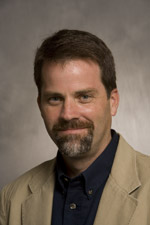 Peter Demerath (associate professor, Department of Organizational Leadership, Policy, and Development), Marian Heinrichs (Department of Research, Evaluation and Assessment, Saint Paul Public Schools), and Gayle Smaller (New Lens Urban Mentoring Society, Saint Paul Public Schools Foundation) recently received a grant from the CURA University Metropolitan Consortium, Metropolitan Grants Program, to address “talent loss” in the Twin Cities over the course of the 2014-2015 school year.
Peter Demerath (associate professor, Department of Organizational Leadership, Policy, and Development), Marian Heinrichs (Department of Research, Evaluation and Assessment, Saint Paul Public Schools), and Gayle Smaller (New Lens Urban Mentoring Society, Saint Paul Public Schools Foundation) recently received a grant from the CURA University Metropolitan Consortium, Metropolitan Grants Program, to address “talent loss” in the Twin Cities over the course of the 2014-2015 school year.
This research / evaluation study seeks to understand the local development of academic mindsets among non-immigrant and immigrant minority students in Saint Paul public schools. Recent research has indicated that academic mindsets strongly shape students’ abilities to take on academic behaviors, persevere at difficult tasks, and use available learning strategies. These non-cognitive skills are closely aligned with specific forms of psychological capital that Demerath identified in his previous ethnographic research on class culture and school success in suburban Ohio.
In addition to contributing scholarly understandings regarding how individual students develop these assets, the study will generate specific recommendations on intervention points and opportunities that schools and districts should consider in order to assist a broader range of students in acquiring them.
The project is a unique collaboration between the University of Minnesota, Saint Paul Public Schools Department of Research, Evaluation and Assessment, and the New Lens Urban Mentoring Society (NLUMS). Developed in 2012, NLUMS provides African American 8th and 9th grade boys on the east side of Saint Paul with high quality culturally congruent mentors that focus on developing non-cognitive skills associated with academic and career success. During the 2014-2015 school year, NLUMS will be serving approximately 120 African American youth in Saint Paul.
Several educational and human service provider organizations have expressed interest in the NLUMS model – especially in expanding its reach to address the needs of other groups of students, such as Somalis and Native Americans. (In addition, NLUMS was featured in a recent White House briefing on the My Brother’s Keeper initiative at UMN in June, 2014). Gayle Smaller has indicated to these groups that while NLUMS is certainly open to these possibilities in the future, for the present a primary challenge is conducting a rigorous evaluation of NLUMS’s effectiveness. Toward that end, Demerath, Heinrichs and Smaller, in consultation with Jean King (professor, OLPD) have been developing an effective evaluation strategy: because of the racially intimate nature of the NLUMS work, the evaluation will be participatory in order to honor and respect the unique and candid “in-house” exchanges between mentors and mentees. A major portion of the project funds have been dedicated to hiring four CEHD African American male graduate students to be a part of the evaluation team, including Jamal Adam, John Ehlert, Dane Verret, and Eskender Yousuf.



